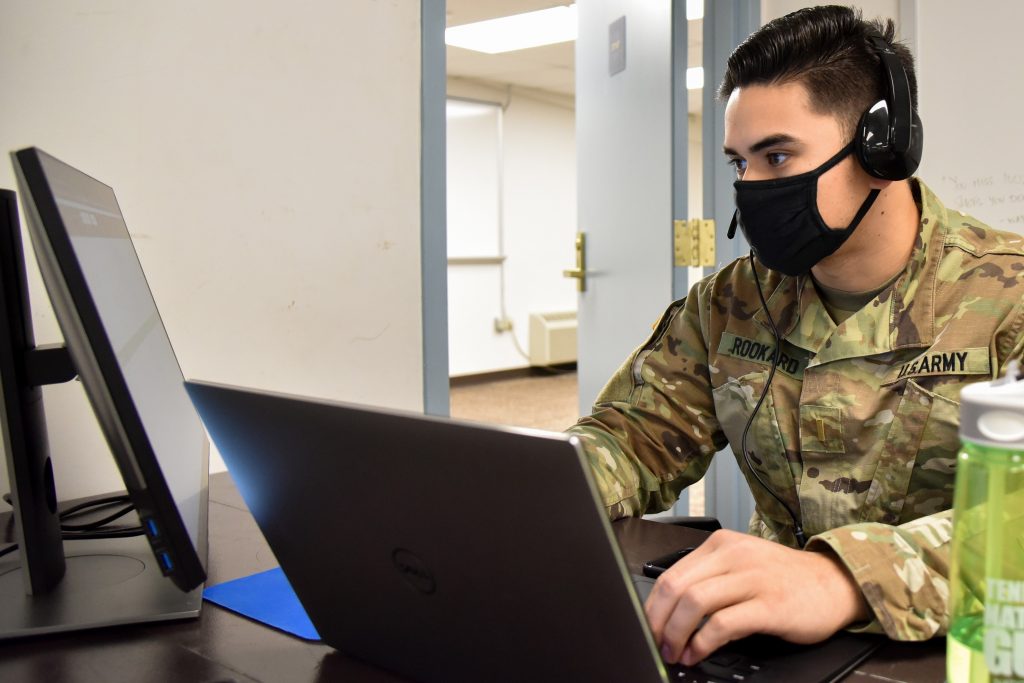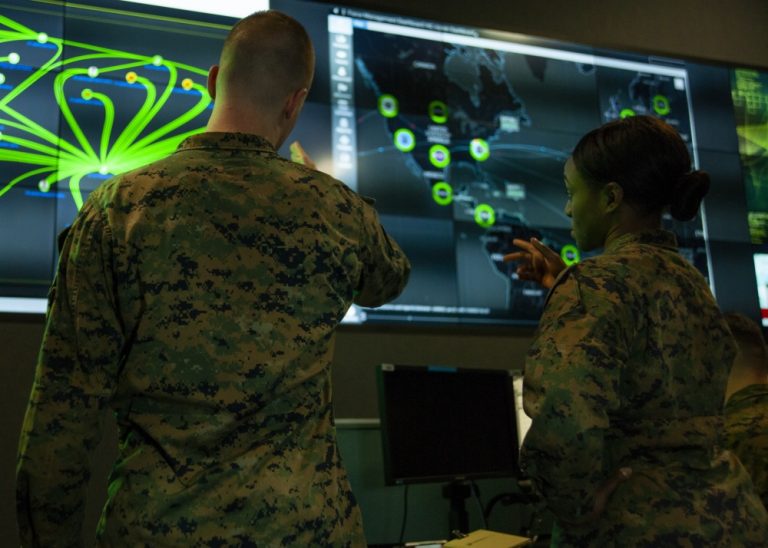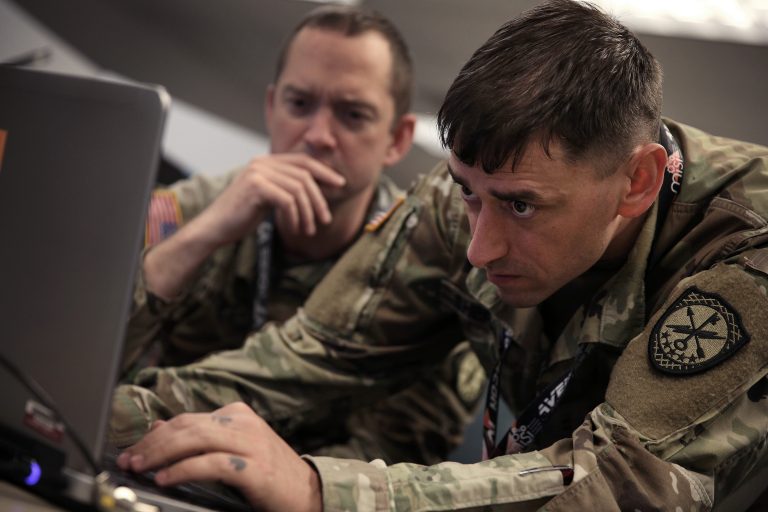
By Master Sgt. Erich B. Smith, National Guard Bureau
ARLINGTON, Va. – The National Guard plays a critical role in defending computer networks and mitigating cyber-attacks that occur almost daily, said Guard senior leaders during a roundtable discussion Tuesday.
“Cyber incidents are an ongoing and substantial threat,” said Army Gen. Daniel Hokanson, chief of the National Guard Bureau. “In 2021 alone, America’s power plants, food supply, water supply, health care, law enforcement, and defense sectors have all come under attack.”
That’s why upcoming exercises like Cyber Shield 2021 – which helps prepare “Guard cyber warriors to deter, disrupt and defeat malicious cyber activity” – are important, he said. Adding the Guard plays a key role in the Department of Defense’s cyber enterprise while partnering with outside agencies.
“We have also emerged as a trusted and valuable resource in helping our local, state and federal partners defend and mitigate against cyber-attacks,” Hokanson said.
More than 750 Army and Air National Guard members will be working with those partners during Cyber Shield 2021, scheduled for July 10-24 at Camp Williams, Utah. Some teams and individuals will participate virtually.
Air Force Maj. Gen. Richard Neely, the adjutant general of the Illinois National Guard and a master cyberspace officer, said the exercise exemplifies how “the best solutions come from those with hands-on [experience] and then are implemented across organizations.”
Cyber Shield helps strengthen the hands-on aspect, he said and includes the “best of the best” from both in and outside the military.
This year’s training scenarios are largely based on real-world events, said Army Lt. Col. Brad Rhodes, the officer in charge of the exercise.
“When we designed this exercise, we looked at what’s happening right now in cyberspace and asked what will give our Soldiers and Airmen and our mission partners a realistic event that helps them understand what is directly in front of them,” he said.
The training scenario is focused on an environmental disaster – the result of a cyberattack orchestrated by the exercise’s opposing force, or red team, targeting networks tied to water infrastructure.
“The opposing force has been in that network, they are in that network, and they are continuing to attack in that network and give blue teams – defensive cyber operation elements and cyber protection teams – things to find,” said Rhodes.
From there, blue teams work to halt the cyberattacks and then operate in an “advise and assist” capacity to the scenario’s network owner.
“Just because our [blue team] elements catch the [opposing force] guys in the act – that doesn’t mean they can just stop,” Rhodes said, adding they have to work with the scenario’s network owner and recommend changes and a plan to move forward.
Guard cyber units primarily work on government networks, but they have been called in to assist state and local agencies in responding to cyber-attacks.
This year is also the first time international partners – part of the State Partnership Program, a Department of Defense program that pairs National Guard elements with partner nations worldwide – will participate in the exercise.
Military members from 15 SPP partners are slated to attend and experience firsthand how the Guard trains for cyber defensive operations.
“This is essential,” Rhodes said. “They are receiving the same kind of threats as we are, and sometimes they are much closer to the threat than we are.”
The exercise also highlights the Guard’s long-standing relationship with local communities. A cyber specialist with the town government of Pleasant Prairie, Wisconsin, a town of about 20,000 people, is slated to take part.
“That happened through local connections between that state’s cyber response team and National Guard cyber warriors, who connected a cybersecurity expert that works for the village with this national-level military exercise,” said Neely.
Many Guard members, he added, also benefit from having civilian cyber careers.
“They bring their civilian-acquired skills and experience, in addition to their military cyber training,” said Neely.
Sgt. Tucker Huff is one of those Guard members. A cyber protection specialist with the Kentucky Army National Guard’s 175th Cyber Protection Team said exercises like Cyber Shield provide additional opportunities to show his skills and learn from others.
“I get to showcase what I know and gain more knowledge from others,” he said, adding that exercises allow him “to offer more to the table with each passing year.”
Improving cyber skills and growing partnerships are key, said Neely, as cyber threats show no signs of slowing down.
“As with other emergencies, it is best not to be trading business cards in the middle of a crisis,” he said. “It is all about planning and training together.”
Source US Army


